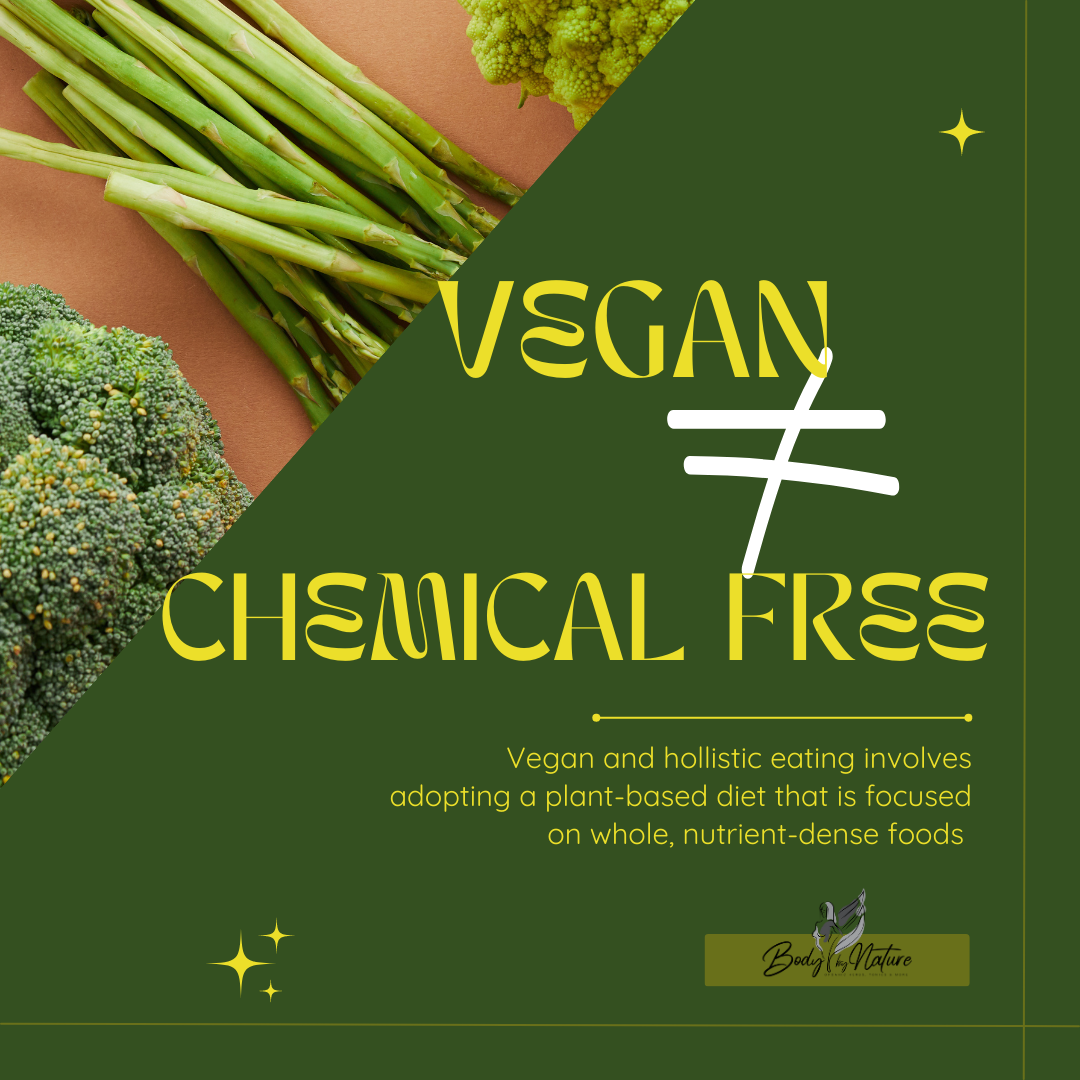Veganism is a way of life that embraces the principles of compassion for animals, environmental sustainability, and health. It entails avoiding the use of animal products, including meat, dairy, eggs, honey, and other animal-derived ingredients. The vegan lifestyle encourages the consumption of a wide variety of plant-based foods like fruits, vegetables, whole grains, legumes, nuts, and seeds. By eliminating animal products from their diet and daily routines, vegans aim to reduce their contribution to animal suffering and mitigate the environmental impact of animal agriculture.
Although veganism focuses on abstaining from animal-derived products, it does not directly address the presence of synthetic chemicals in the foods and products vegans consume. Many plant-based foods, especially those that are processed or packaged, may contain chemical additives, preservatives, and artificial substances. For instance, vegan cookies, snacks, and pre-packaged meals may include artificial flavors, colors, and preservatives to enhance taste, appearance, and shelf life.
Living in a modern world, it is challenging to avoid all synthetic chemicals entirely. They are pervasive in various aspects of our lives, including food, personal care products, cleaning supplies, and the environment. Even organically grown crops can come into contact with synthetic pesticides or be exposed to environmental pollutants.
The term "vegan" on a product label simply indicates the absence of animal-derived ingredients. However, it does not guarantee the absence of chemicals or synthetic additives. To ensure a more chemical-conscious approach to consumption, individuals should focus on scrutinizing ingredient labels and seeking products that prioritize natural and organic ingredients.
While veganism may not inherently translate to being chemical-free, conscious consumers can make informed choices to minimize exposure to synthetic substances. Here are some tips for adopting a more chemical-conscious approach within a vegan lifestyle:
1. Choose Whole Foods: Opt for fresh, whole, and minimally processed plant-based foods to reduce exposure to chemical additives.
2. Read Labels: Be vigilant about reading ingredient labels to identify and avoid products with artificial additives, colors, and preservatives.
3. Prioritize Organic: Consider selecting organic produce and products whenever possible to reduce exposure to synthetic pesticides and chemicals.
4. DIY and Natural Alternatives: Explore do-it-yourself (DIY) options for personal care and cleaning products, utilizing natural and non-toxic ingredients.
5. Support Ethical Brands: Seek out ethical and eco-friendly brands that prioritize transparent ingredient sourcing and environmentally friendly practices.
Veganism is a profound lifestyle choice that advocates for compassion, sustainability, and health. While adopting a plant-based diet is an essential step towards promoting animal welfare and environmental preservation, it does not automatically equate to being chemical-free. By being aware of the presence of synthetic chemicals in various products and making conscious choices to prioritize natural and organic options, individuals can align their vegan journey with a chemical-conscious approach, fostering a healthier and more environmentally sustainable lifestyle. Embracing both ethical and chemical-conscious considerations is key to promoting personal well-being and contributing to a more compassionate and sustainable world.
